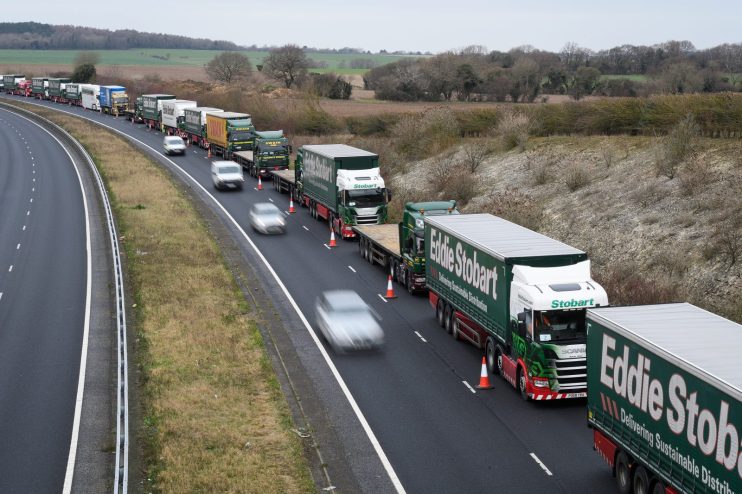British lorry drivers now need negative Covid test to enter Denmark and Netherlands

Hauliers will now need to provide a negative coronavirus test before entering Denmark and the Netherlands, the government has announced.
All drivers of heavy goods vehicles (HGVs) have been told they will be eligible for free Covid tests at specialist sites across the country. However, just four out of 35 of the sites will run 24 hours a day, with the majority open between 6am and 10pm.
The French government last week said British lorry drivers would be only be allowed to enter if they took a rapid Covid test at the border, as it rolled out new measures requiring all other entrants from the UK to present a negative PCR test.
The rapid tests, also known as lateral flow tests, provide a result within half an hour, while PCR tests must be processed in a laboratory.
It comes as countries around the world scramble to prevent the spread of a new coronavirus variant first identified in the UK, with at least 40 countries banning travel from Britain.
Fears that the Covid mutation might spread to the continent caused major chaos at Dover over the Christmas period, after French President Emmanuel Macron shuttered travel across the Channel.
The move caused a pile-up of more than 4,000 grounded lorries at Dover for over a week.
However, British officials have been quick to note the Covid mutation was only identified in the UK because of the nation’s “unique genomic capabilities”.
Ministers have now set up a G2P Group to identify new coronavirus variants and whether they might cause problems before they become prevalent in the community.
Transport secretary Grant Shapps last week announced a four-week suspension of all travel corridors with the UK effective from 4am this morning, after the Prime Minister said he was “very concerned” about a new South African variant of the virus.
However, Mike Ryan, the World Health Organization’s top emergencies official, last week said geographical names used to identify new Covid strains may be unfairly punitive on the countries that identify them.
“It’s really important that when people call it the UK variant or ‘South African variant that we aren’t assigning values to these countries — these countries aren’t the cause of this problem,” he said at a news conference.